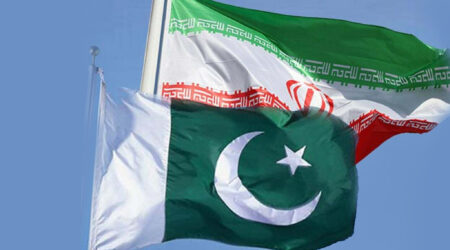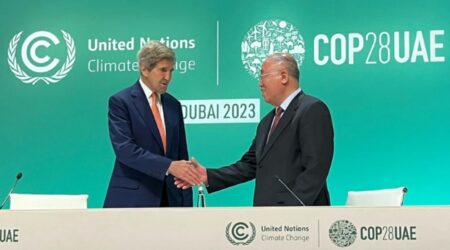Manila, Philippines: Chinese diplomats expressed their strong opposition to an expanded United States military presence in the Philippines in closed-door talks with their Filipino counterparts Thursday in Manila, a Filipino official said, underscoring the intense U.S.-China rivalry in the region.
The Philippine official, who attended the meeting, told news agencies about China’s intense objections on condition of anonymity for lack of authority to discuss what transpired at the start of the two-day talks.
The Filipino diplomats responded by saying the decision to allow an expanded American military presence was in their national interest and would boost Philippine capability to respond to natural disasters, the official said, suggesting it was not aimed at China.
Chinese Vice Foreign Minister Sun Weidong and Philippine Foreign Undersecretary Theresa Lazaro led the talks aimed at assessing overall relations between the two sides amid thorny issues, including Beijing’s alarm over a Philippine decision to allow the U.S. military to expand its presence to a northern region facing the Taiwan Strait and escalating spats in the South China Sea.
The discussions on Friday will focus on the long-seething territorial spats in the disputed waterway, according to the Department of Foreign Affairs in Manila.
In early February, the Marcos administration announced it would allow rotating batches of American forces to indefinitely station in four more Philippine military camps. Those are in addition to five local bases earlier designated under a 2014 defense pact between the longtime treaty allies.
Marcos said Wednesday the four new military sites would include areas in the northern Philippines. That location has infuriated Chinese officials because it would provide U.S. forces a staging ground close to southern China and Taiwan.
The Americans would also have access to military areas on the western Philippine Island province of Palawan, Marcos said, adding that the U.S. military presence under the 2014 Enhanced Defense Cooperation Agreement was aimed at boosting coastal defense.
Palawan faces the South China Sea, a key passage for global trade that Beijing claims virtually in its entirety but a United Nations-backed arbitration tribunal ruled in 2016 that the historical claim had no legal basis under the 1982 U.N. Convention on the Law of the Seas.
China dismisses the ruling, which Washington and other Western governments recognize, and continues to defy it.












